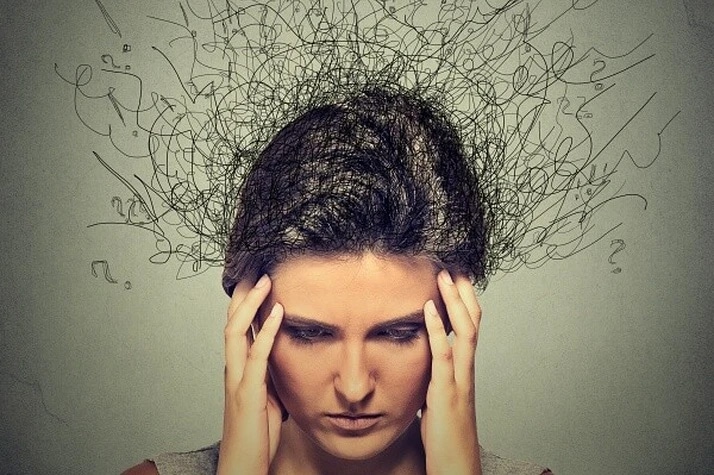Do you have trouble relaxing? Are you unable to control or stop worrying? Feel nervous, anxious or on edge?
These were the most common symptoms of anxiety found in a study of people with migraine and mood disorders, that found anxiety was strongly associated with migraine, even more so than depression. (1)
Anxiety is more common in people with migraine (compared to people without), but it may be a circular relationship. Anxiety and stress can trigger a migraine attack (either as anxiety increases, or shortly after a period of stress – the ‘let-down’ migraine) and can make attacks more frequent and severe, and migraine disease can lead to anxiety. Not surprisingly, the risk of anxiety increases the more migraine attacks you have per month; but the presence of anxiety increases the risk of migraine becoming chronic (having 15 or more headache days a month).
How does this work? There are many theories – stress hormones may be involved in migraine attacks, anxiety may disrupt sleep which can precipitate a migraine attack, the fear and dread of a migraine attack may lead to anxiety (and an attack). There may also be a genetic link, as both migraine disease and anxiety can run in families, or there may be a common neurochemical pathway in both conditions.
If you’re experiencing anxiety associated with migraine attacks, it’s even more important to try and manage stress. There are many ways to tackle this – cognitive behavioural therapy, meditation, massage, yoga, relaxation techniques. Keeping active and maintaining a sleep routine are foundational practices. Reducing caffeine and alcohol intake may also help. Consulting your doctor for medication options may be needed. Treating the anxiety can improve the migraine attacks.
If you’re worried about feeling worried, check out this online questionnaire to see if you have signs of anxiety – and talk to your doctor if you are concerned. It’s not inevitable to have both migraine and anxiety and they can be treated. It’s a stressful world, and we could all benefit with a little more time out and relaxation – let’s remember to give our brains a break.
Free 24/7 helplines
- Call or text 1737 for support from a trained counsellor
- Text (4357) or call Lifeline 0800 LIFELINE (0800 543 354)
- Call 0800 269 4389 (0800 ANXIETY)
Find out more about anxiety and support in New Zealand
More information about migraine and anxiety
- The Migraine and Anxiety Cycle (and How to Break It), Migraine Again
- Migraine and Anxiety, The Migraine Trust
References
- Fernando M, Peres P, Mercante JPP, Tobo PR, Kamei H, Bigal ME. Anxiety and depression symptoms and migraine: a symptom-based approach research. doi:10.1186/s10194-017-0742-1
- Messina R, Delussi M, Khalil H, et al. The Migraine-Anxiety Comorbidity Among Migraineurs: A Systematic Review. Frontiers in Neurology | www.frontiersin.org. 2021;1:613372. doi:10.3389/fneur.2020.613372
- Irimia P, Garrido-Cumbrera M, Santos-Lasaosa S, et al. Impact of monthly headache days on anxiety, depression and disability in migraine patients: results from the Spanish Atlas. Scientific Reports |. 123AD;11:8286. doi:10.1038/s41598-021-87352-2
- Lampl C, Thomas H, Tassorelli C, et al. Headache, depression and anxiety: associations in the Eurolight project. J Headache Pain. 2016;17(1). doi:10.1186/S10194-016-0649-2


